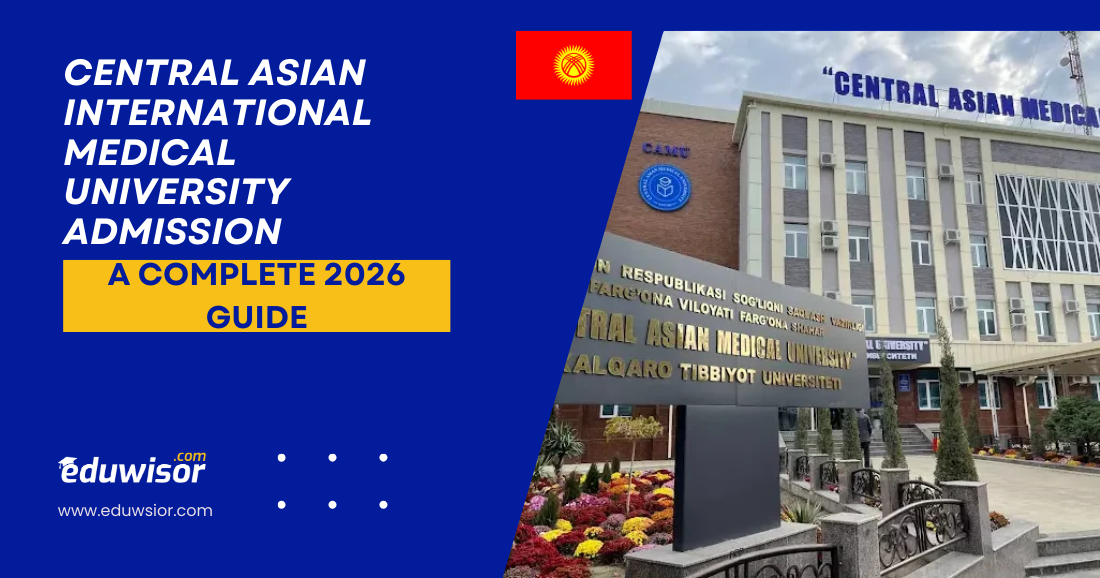Introduction
The Central University of Europe (CUE) has achieved a significant milestone by securing World Health Organization (WHO) recognition, cementing its position among the world’s leading medical institutions. This recognition not only elevates the university’s global standing but also opens doors for students seeking internationally accredited medical degrees.
In this blog, we explore:
- What WHO recognition means for the Central University of Europe
- The benefits for medical students and graduates
- How this impacts global medical education standards
- Why this recognition matters for aspiring doctors
What Does WHO Recognition Mean for the Central University of Europe?
The WHO’s World Directory of Medical Schools (WDOMS) lists institutions that meet stringent global standards in medical education. For the Central University of Europe, this recognition:
✔ Validates the quality of education – Ensures programs meet international benchmarks.
✔ Enhances global employability – Graduates can pursue careers worldwide.
✔ Strengthens research collaborations – Partners with top medical institutions.
✔ Boosts student mobility – Easier transfers and further studies abroad.
This achievement places CUE alongside other prestigious WHO-listed universities, reinforcing its commitment to excellence in medical education.
Benefits for Medical Students & Graduates
1. Global Career Opportunities
With WHO recognition, graduates from the Central University of Europe can:
- Apply for medical licensure in multiple countries.
- Pursue residency programs in the US, UK, Canada, and EU.
- Work in internationally recognized hospitals and research centers.
2. Enhanced Credibility & Prestige
Employers and institutions trust degrees from WHO-accredited universities, giving graduates a competitive edge.
3. Eligibility for International Exams
Graduates can sit for major medical licensing exams, including:
- USMLE (United States Medical Licensing Examination)
- PLAB (UK Professional and Linguistic Assessments Board)
- MCCQE (Medical Council of Canada Qualifying Examination)
4. Increased Research & Exchange Programs
Students gain access to:
- Global research grants.
- Exchange programs with top medical schools.
- Conferences and workshops hosted by WHO-affiliated institutions.
Impact on Global Medical Education Standards
The Central University of Europe’s WHO recognition signifies a shift toward standardized, high-quality medical training worldwide. Key impacts include:
✅ Higher Admission Standards – Ensures only qualified students enroll.
✅ Improved Curriculum – Aligns with WHO’s global health guidelines.
✅ Stronger Faculty & Facilities – Attracts top-tier professors and resources.
This development also encourages other universities to seek WHO accreditation, raising the bar for international medical education.
Why This Recognition Matters for Aspiring Doctors Central University of Europe
Choosing a WHO-recognized medical school like the Central University of Europe ensures:
🔹 Globally Accepted Degrees – No barriers to practicing medicine abroad.
🔹 Better Residency Placements – Higher chances of matching into competitive programs.
🔹 Strong Alumni Network – Connections with professionals in top hospitals.
For students aiming to practice in Europe, North America, or beyond, this recognition is a game-changer.
Conclusion
The Central University of Europe’s WHO recognition is a testament to its commitment to excellence in medical education. For students, this means greater career prospects, global mobility, and a degree respected worldwide.
As the demand for internationally accredited medical programs grows, CUE stands out as a top choice for aspiring doctors seeking quality education and global opportunities.
Interested in studying at a WHO-recognized university? Explore the Central University of Europe’s programs today!
Eduwisor always guides students toward the right path with an unbiased approach. You can follow us on Youtube, Facebook, Instagram, Twitter, and Linkedin. Stay tuned for regular updates.
Interested in applying? Contact authorized Eduwisor consultant for a smooth admission process!
Act NOW—limited seats for 2025 intake! Call/WhatsApp: 9326395883/ 9076036383









